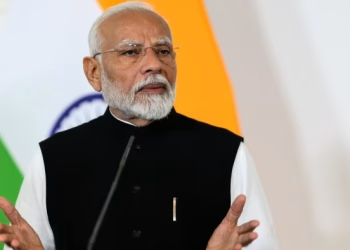Australia’s spy chief has warned that hackers linked to the Chinese government and military are actively probing the country’s critical infrastructure, raising the risk of “high-impact sabotage” in the coming years.
Mike Burgess, Director-General of the Australian Security Intelligence Organisation (ASIO), told business leaders in Melbourne on Wednesday that Australia is facing “unprecedented levels of espionage” and an escalating threat of “cyber-enabled sabotage”.
Without naming China directly, Burgess said: “There is one nation state — no prizes for guessing which one — conducting multiple attempts to scan and penetrate critical infrastructure in Australia and in allied countries,” targeting water, transport, telecommunications and energy networks.
He warned that authoritarian regimes are now more willing “not just to spy, but to disrupt and destroy,” using cyber operations to “impede decision-making, damage the economy, undermine war-fighting capability and sow social discord”.
Burgess cited two Chinese-linked hacking groups, Salt Typhoon and Volt Typhoon, as examples of this emerging threat. Both have previously been accused by Western governments of targeting telecommunications and other critical infrastructure.
“These groups are hackers working for Chinese government intelligence and their military,” he said.
Salt Typhoon, he explained, has focused on espionage, breaking into telecoms networks in the United States and “probing our telecommunication networks here in Australia too.”
Volt Typhoon, by contrast, is believed to be positioning itself for disruption. Burgess said the group has compromised critical infrastructure in the US “for potential, future sabotage” — and similar activity has been detected in Australia.
“And yes, we have seen Chinese hackers probing our critical infrastructure as well,” he added.
To illustrate the stakes, Burgess pointed to the impact of short-lived but high-profile telecom outages in Australia that were unrelated to foreign interference, noting how quickly they caused widespread disruption.
“That’s one phone network not working for less than one day,” he said. “Imagine the implications if a nation-state took down all the networks. Or turned off the power during a heatwave. Or polluted our drinking water. Or crippled our financial system.”
Burgess also warned that foreign intelligence services are “broadening their collection requirements”, aggressively targeting private-sector projects, negotiations and investments that could give overseas companies a commercial edge, as well as harvesting vast troves of customer data.
He estimated that espionage cost Australia about A$12.5bn (US$8.2bn; £6.2bn) in 2023–24 alone, including roughly A$2bn in stolen trade secrets and intellectual property from Australian firms.
Describing the hackers’ techniques as “highly sophisticated,” Burgess said they are using advanced tradecraft to find vulnerabilities, gain access, and “maintain persistent, undetected access” that would allow them to launch sabotage “at a time and moment of their choosing.”





















